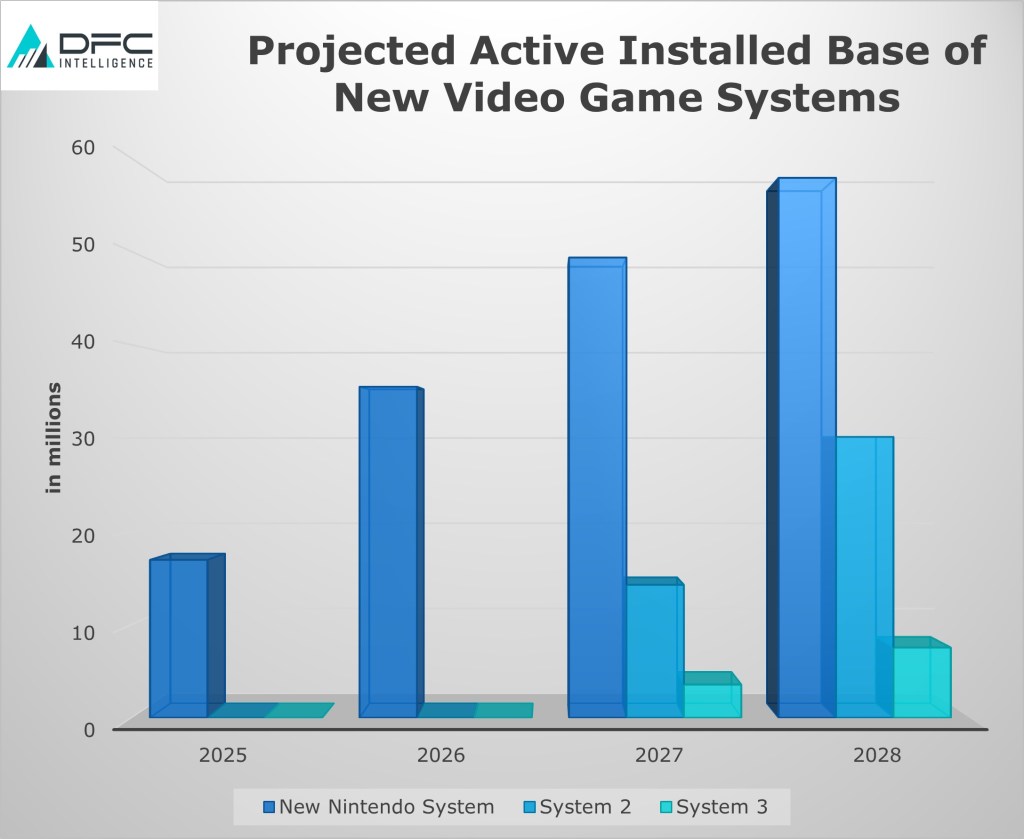The future games industry will favor two consoles | DFC Intelligence

The games industry will not only grow in the next few years, but experience shifts in the hardware market, according to DFC Intelligence — with only two clear winners out of three major manufacturers. The research and advisory firm has released its annual market report and forecast today, and one of the major takeaways of the latter is that consumers will only have room in their wallets for two new gaming consoles, while the third will struggle to find its place.
Previous DFC reports suggest that 2025 will begin a period of record growth for the games industry, and this markets report elaborates on that: It predicts that the industry will recover from the decline of the previous years thanks in part to exciting new game and console launches — two of the biggest and most immediate being the new Nintendo console and Grand Theft Auto VI, both of which are predicted for 2025.
The report also shows that the gaming audience will grow alongside the market itself. By 2027, DFC predicts that the population of gamers will hit 4 billion, up from the roughly 3.8 billion where it currently stands. Most of those 4 billion gamers will be “low revenue,” meaning they won’t spend a lot of money on games. Conversely, the top 10% of spenders in the gamer population will account for 65% of video game revenue in the next few years, according to the report.
Two consoles are winners in the next few years
Alongside the growth of the gamer population, DFC also forecasts the state of the hardware market over the next few years. The new Nintendo console will be a major driver of growth, and the report suggests that it will have an even stronger launch than the Switch, and many households might buy multiple devices. This will be part of a larger trend of hardware spending — DFC predicts hardware revenue spending will hit $120 billion in 2028.
However, not every console will have the Nintendo treatment, says the report. Both Sony and Microsoft will likely release a new console between now and 2028, but only one is predicted to be successful. As both the next PlayStation and Xbox consoles are completely theoretical at this point, there’s no way to know which one will achieve success. It will depend on the new consoles’ features and active install base.

In addition to hardware sales, the report also forecasts shifts in gaming revenue over the next few years. Add-on content and subscription revenue will continue to exceed that of full games, with individual game subscriptions (e.g. MMOs) exceeding those that offer multiple games (e.g. Xbox Game Pass). One of the biggest challenges facing game companies will be distribution.
DFC Intelligence CEO and founder David Cole said in a statement, “Over the past three decades, the video game industry has grown more than 20x, and after two years of slumping hardware and software sales, it’s poised to resume growing at a healthy rate through the end of the decade. While 2025 will mark the beginning of that upward trajectory, some huge questions remain, including who will lose the next-gen console war and who will win the game software distribution battle. And with the large publishers focused on live services around evergreen franchises, opportunities for smaller studios will be plentiful.”



